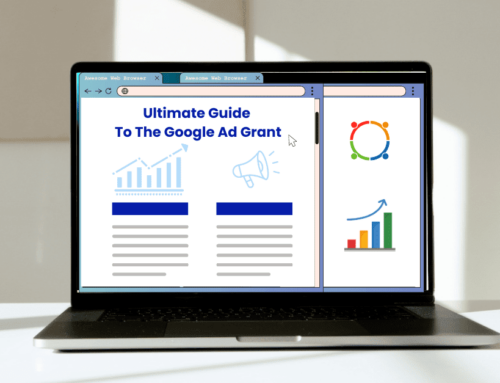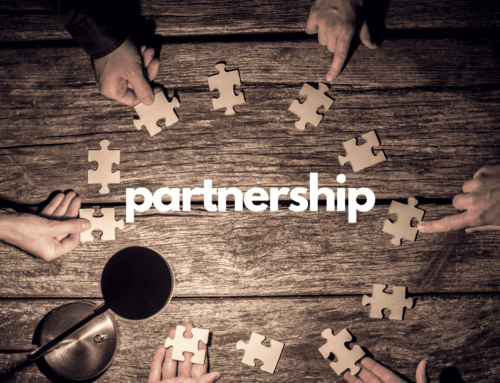In today’s digital age, effective marketing for nonprofits can make or break an organization’s reach and impact. And there are innumerable options to choose from. Some are designed and particularly promising for nonprofits, like Google Ad Grants, while others can be employed by nonprofits and businesses alike, from social to traditional offline marketing.
With so many tools available and the modern emphasis on convenience, the promise of “one-stop shopping” for all things marketing tempts many nonprofits towards generalist firms. These companies attempt to handle many different types of marketing with a single team. These teams intend to be all things to all platforms, and the thought that they could be is undeniably attractive to nonprofits, who are inherently concerned with keeping costs down and maximizing returns on any overhead costs.
However, where a wide spread of services is cast as the strength of these generalist firms, the importance of specialist teams only grows as the resources available to marketers become more numerous and complex. Nowhere is this more true than in the case of advertising grants, such as those from Google and Microsoft.
Google controls over 90% of the global search market, and Microsoft controls about half of the 10% left over. Those figures alone demonstrate how disproportionately valuable ads on these channels can be compared to those with more fragmented audiences, such as social media networks.
Given the outsized promise of grant-funded search ads, they deserve a level of management and focus in line with their potential. A level that generalist firms simply cannot offer.
Continue reading for a comparison of specialist marketing teams versus generalist firms, and how each might serve your nonprofit.
The Benefits of Specialization
1. Thorough and Nuanced Understanding
In regards to Google Ad Grants, this is imperative. Where most generalist firms deal more with traditional paid ads than the Google Grant program specifically, having a Grant Manager that is predominantly trained on Grant policies is essential.
Google Grant Ad policies aren’t just different from paid Google Ads policies — they’re stricter, and they change often. There are many things that Google allows for-profit companies to advertise with paid ads that are not compliant with Grant ads. Beyond this, there are account structures, tools, and practices that are not Grant-compliant, even when your ads themselves might be.
A single account issue can lead to all of an organization’s ads being suspended, costing a nonprofit invaluable clicks every day. Teams specialized in Grant Management know how to avoid these issues, and will never be caught surprised by something that is allowed in traditional ads but will result in Grant ads disapproved.
As Google Grant-funded ads are available only to nonprofit organizations, while millions of for-profit advertisers use Google Search Ads, most generalists are far more familiar with paid ad policies than Google Grant policies. Hiring a specialist is the only way to ensure that your account is handled with the necessary caution and insight, and that it avoids suspension.
2. Distinct Ad Strategies
It’s not just the rules for paid and Grant ads that differ — it’s best practices, strategy, and much more. To delve into a single example, when your marketing team has a primary focus on paid ads and multiple channels, as does any generalist marketer, it is understandable that a broad, traditional measure of ROI takes central focus in their strategy and analysis.
This traditional measure of ROI seeks to minimize spend and maximize traffic of any sort, as every dollar spent on ads comes out of the organization’s pocket. This kind of instinct and experience is hard to shake.
Grant ads, though, work in almost exactly the opposite way. The whole idea is that you get to make bids that don’t come out of your pocket when your site gets clicks. This allows for bidding on extremely competitive keywords that are most relevant to your organization and likely to bring in supporters. These are often the same keywords that traditional marketers would avoid in order to keep cost per click down. Where traditional ads require a constant effort to spend less, Grant ads allow nonprofits to intentionally spend more, at no cost to their bottom line.
The differences this brings about in ad and bid strategies are profound. Only a specialist can commit 100% of their time and attention to staying sharp on Grant-specific best practices. The generalized mixing of Grant and paid ad strategies, on the other hand, reduces the potential of both.
3. Depth Over Breadth
When a tool has as much promise as Google Ad Grants, it warrants (and requires) a deep understanding in order to use it to its fullest. Gaining this understanding, and then remaining up to date as things change, is a full-time job. And it is the full-time job of a marketing specialist, their sole focus.
Further, with commitment to a singularly effective marketing channel, specialized marketers and marketing consultants develop customized, complementary tools that put their expertise to work even more effectively for you. These can range from custom reporting dashboards to content marketing specialists.
On the other hand, generalists are characterized — by design — by divided focus. They are doing ten things at once for many clients. While they may do some of these things well, none receive the undivided attention required to achieve truly peak performance.
In short, they focus on going “wide” with their general service rather than going deep with any one channel, tool, or resource, leading to a de facto deprioritization of those which may be most beneficial.
4. The Disproportionate Promise of Specialized Tools
No other tech company has as high a market share in their industry as Google does in the internet search sector. To put their 90% market share in perspective, Apple has only a 55% market share in US smartphones, and the famously dominant (borderline eponymous) Kleenex has a 31.5% market share in facial tissues. Facebook, TikTok, even Microsoft fail to even compare to Google in pure market dominance.
This is all to say that advertising on Google is a prime example of one tool with the strength of ten. To consider it just another addition to a larger toolbelt is to limit your reach on the most popular online network in the world.
Generalists’ efforts being spread thin across many channels not only limits the results they can achieve from each, it cuts most into the performance of your marketing channels with the greatest potential. The greater the promise of a given marketing channel, the more you are leaving on the table by diluting the focus of your marketing team.
A specialist’s undivided attention to your most important tool can bring the results of multiple other channels combined, often at a fraction of the cost, while a generalist may see the same tool as just another box on a long checklist.
5. ROI Over “Wow” Factor
We’ll be the first to admit it: there isn’t much that is flashy or scintillating about the Google Grant — other than the results it produces, of course. Text ads are more about their reach and targeting than their appearance, a quality which gives them more value in marketing, but often less to “show” than other projects with aesthetic focuses. Search ads are perhaps the single most significant digital marketing tool in existence, but they are about strategy and function over flash and hype (which is what we love about them).
Generalist firms often prioritize projects that have more “wow” factor, like revamping something on your website, drafting an arresting infographic, or designing a social post.
This makes sense from the generalist’s perspective. They want to convince their clients of how much value they are creating, and what better way to do that than with a colorful, attractive visual or something similarly aesthetic and exciting? (With hard numbers, we say.) Generalists’ priorities align with the things that get reactions, not necessarily results.
While these certainly have value, they rarely yield the highest return on investment.
Most such tools serve the audience you have already secured — folks who have already landed on your website, subscribed to a newsletter, or followed your socials. Search ads, on the other hand, are shown every day to new people who don’t yet know your organization, but have searched exactly what you do. Catering to those who have already discovered your nonprofit is, of course, worthwhile — but an effective method of pursuing new supporters yields a far greater ROI over time.
For insight into the power of specialized marketing and its ROI, check out our case studies on nonprofits who have made the most of their advertising with the help of NPM specialists.
Specialist Marketing vs. Generalist Firms
While the allure of generalist firms’ broad services might seem to offer a cost-effective solution, the true cost of this ostensible convenience is revealed in their underuse of the highest-promise marketing channels, and a wider “jack of all trades, master of none” approach.
Specialized teams bring depth of knowledge, undivided attention, and a commitment to maximizing the potential of your grants, ensuring that nonprofits not only reach but also resonate with their target audiences — all in the most effective ways and at the lowest cost. Opting for a specialist over a generalist is not just a strategic choice; it’s an investment in precision, expertise, and ultimately, in the growth and impact of your organization.
Leveraging the skills of a specialized grant management organization like Nonprofit Megaphone maximizes the benefits of your ad grants at minimal cost, affording you greater resources for and focus on your mission.
We’re proud to be a Google Premier Partner who’s helped hundreds of nonprofit organizations amplify their reach, drive website traffic, and boost clicks and conversions. Check out our case studies to learn more about our services, and connect with us today to learn how we can help equip your nonprofit to thrive!





